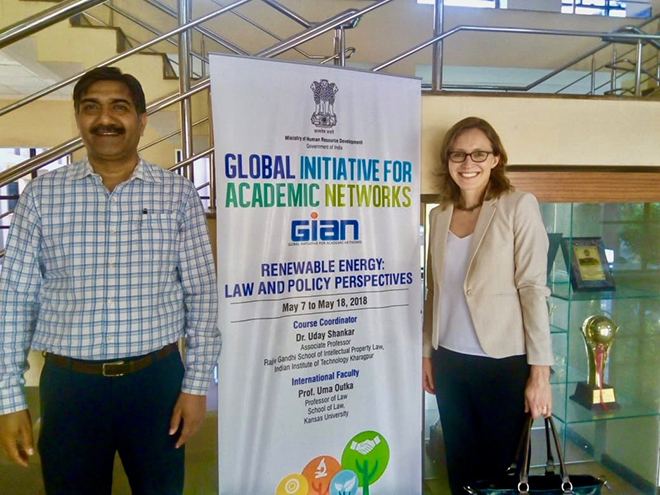
Professors Uday Shankar and Uma Outka co-taught a two-week course about renewable energy law and policy in May at the Rajiv Gandhi School of Intellectual Property Law in Kharagpur, India.
Climate change is a global problem. A University of Kansas energy law scholar recently traveled to India to explore solutions rooted in renewable energy law and policy with Indian students and faculty.
KU Law Professor Uma Outka co-taught a two-week course about renewable energy law and policy in May at the Rajiv Gandhi School of Intellectual Property Law in Kharagpur, India. She taught the course alongside Professor Uday Shankar.
“Collaborating on the course deepened our understanding of the context for scaling up renewable energy in the U.S. and India,” Outka said. “Climate change is a global issue, and every country has to approach climate mitigation in ways that work for its unique circumstances.”
The course was funded by the Global Initiative for Academic Networks, an effort by the Indian government to foster international connections through its higher education system. Shankar invited Outka to provide international context for India’s renewable energy law policies and to offer comparative legal perspectives.
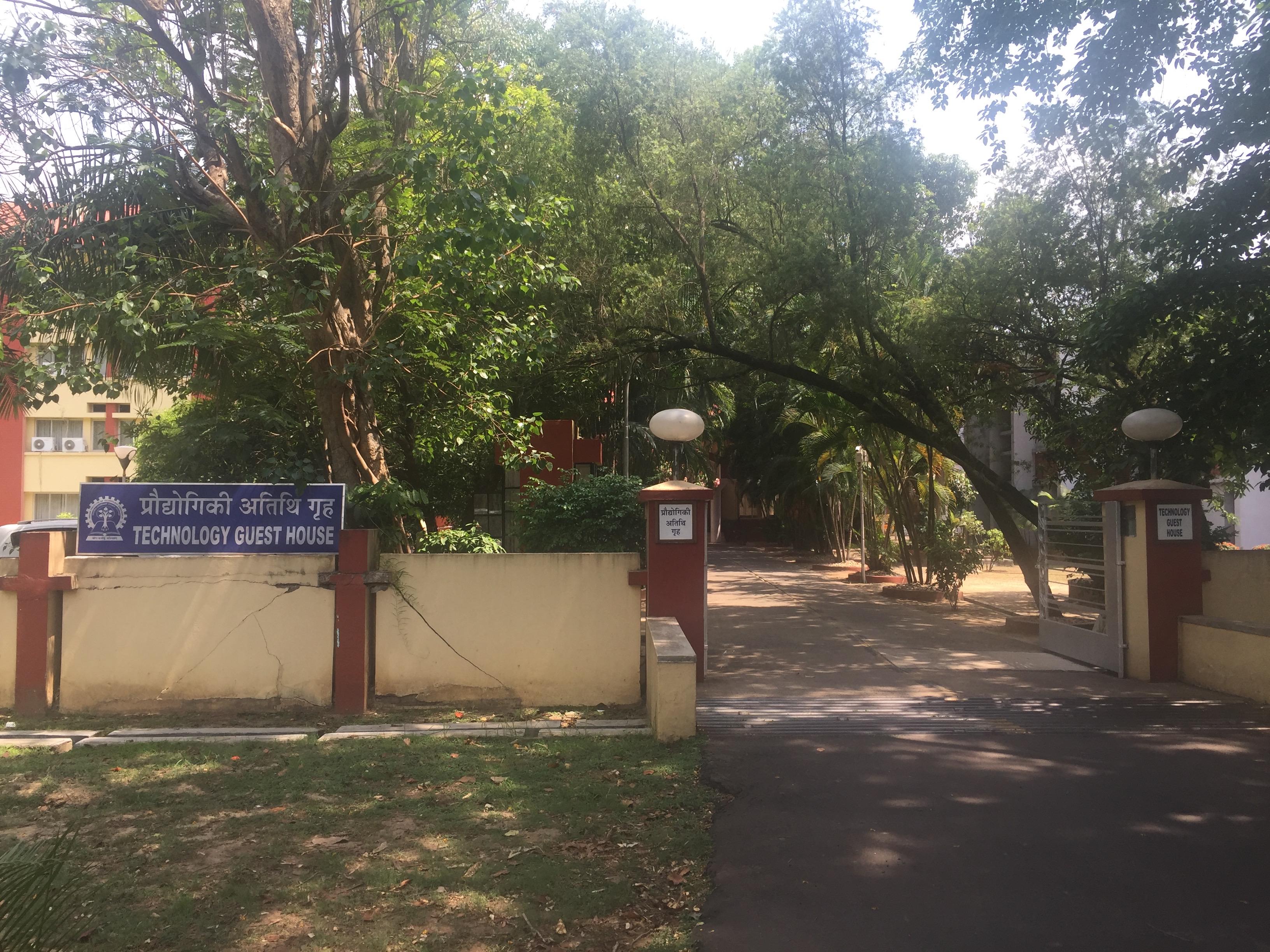
The Technology Guest House is designed to house visiting faculty at the Rajiv Gandhi School of Intellectual Property Law.
“This is a really interesting time for energy law. Virtually every country in the world shares a goal to decarbonize the electricity system and shift to low-carbon sources,” Outka said. “Energy law is an emerging field in India, and Uday Shankar is one of the few professors beginning to regularly teach the subject in Indian law schools. It is exciting to see the field begin to expand in India.”
Outka and Shankar taught their course in an interdisciplinary manner to a mix of students studying law and engineering.
“Some students had never taken a class related to public policy and others were well-versed in legal concepts, so we structured the course to meet the students’ spectrum of preparation,” Outka said. “The feedback from students who had not been exposed previously to law and policy was really enthusiastic.”
One highlight of Outka’s trip was connecting with Dr. Gon Chaudhuri, an Indian expert on renewable energy. “He was instrumental in launching solar energy policy in India,” she said. “He has worked on climate change negotiations and was one of the lecturers in our course.”
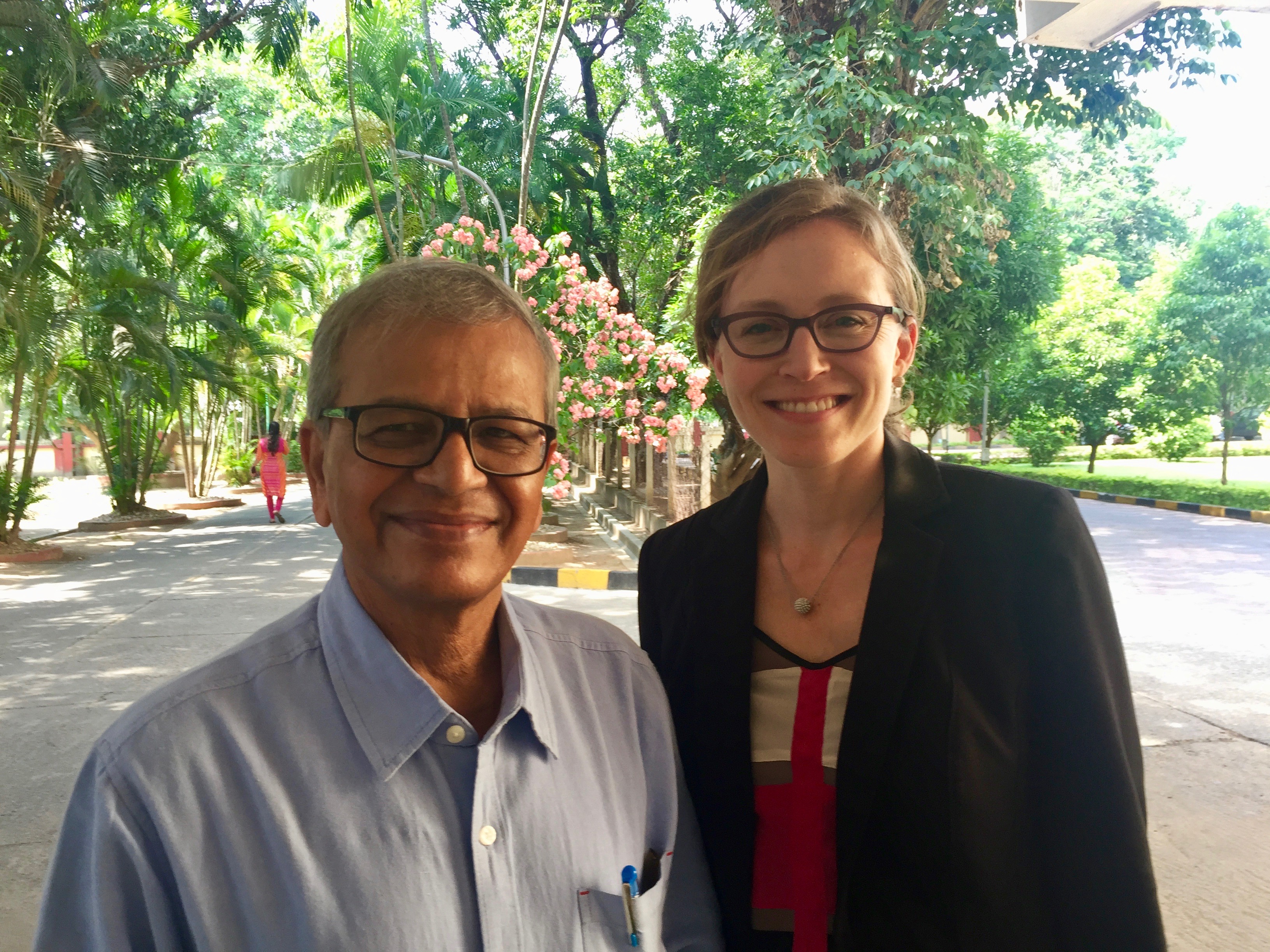
Professor Uma Outka met Dr. Gon Chaudhuri, an Indian expert on renewable energy.
Outka appreciated the opportunity to experience higher education in a different county. She stayed in the institute’s guesthouse for visiting faculty during her visit. “I enjoyed being part of university life,” she said. “There, the faculty and staff all live on campus.”
Outka urges students and faculty alike to pursue international exchanges because they enhance understanding of others’ experiences in an increasingly globalized world.
“I think it’s important, whenever anyone has a chance, to visit a country like India,” she said. “It is a strong emerging economy with over a billion people. I plan to maintain these connections and hope to return. Engaging in this kind of cross-cultural work is a great opportunity.”
The University of Kansas School of Law has strong and growing ties to India.
- KU Law Professors Raj Bhala, Uma Outka and John Peck have visited India, delivering major presentations and offering their scholarship and teaching expertise.
- KU Law has hosted several Overseas Visiting Scholars from India, and a number of Indian students have graduated from KU Law’s S.J.D. and Two-Year J.D. programs.
- KU Law has memoranda of understanding (MOU) with four Indian universities. These partnerships encourage interaction, program development and cross-marketing of degree programs:
- National Academy of Legal Studies and Research, Hyderabad.
- Government Law College, Mumbai.
- Jindal Global Law School, Sonipat.
- Indian Law Institute, New Delhi.
- During recent Indian Society of International Law elections, several friends of KU Law won senior leadership positions. The following new officers are now or have been law professors at schools with which KU Law has an MOU or have visited KU Law as scholars:
- Anupam Jha, professor of law, University of Delhi, former KU Law Visiting Scholar, elected executive council member.
- J.L. Kaul, professor of law, University of Delhi, elected executive council member.
- Y.S.R. Murthy, professor of law, Jindal Global Law School, elected vice president.
- Dabiru Sridhar Patnaik, professor, Jindal Global Law School, elected treasurer.
- Manoj Kumar Sinha, director, Indian Law Institute, New Delhi, elected vice president.
- KU Law Professor Raj Bhala authors “On Point,” a monthly column in India’s BloombergQuint focusing on international legal and economic affairs.
— By Ashley Hocking
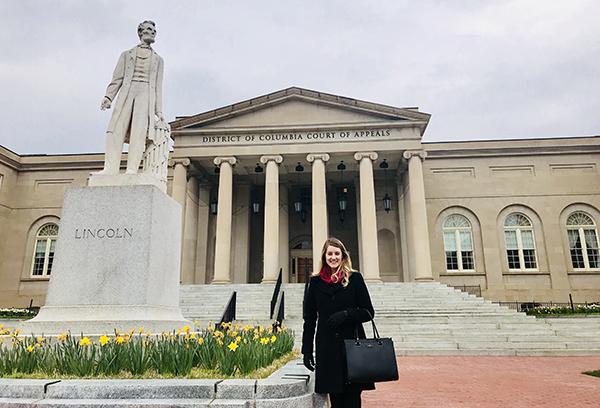
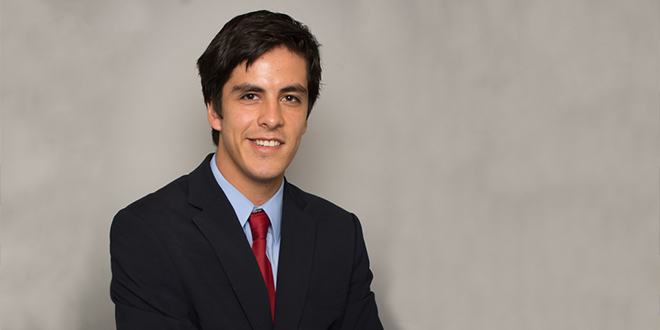
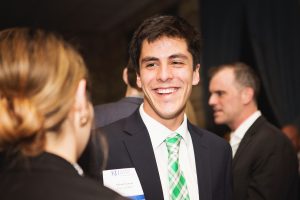
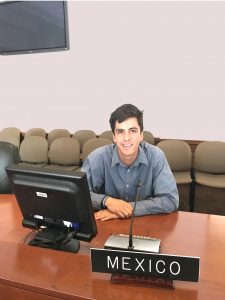
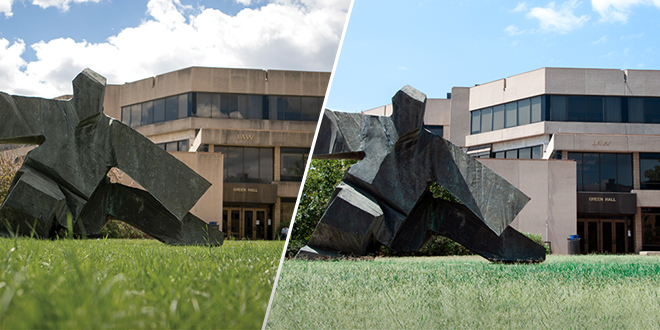
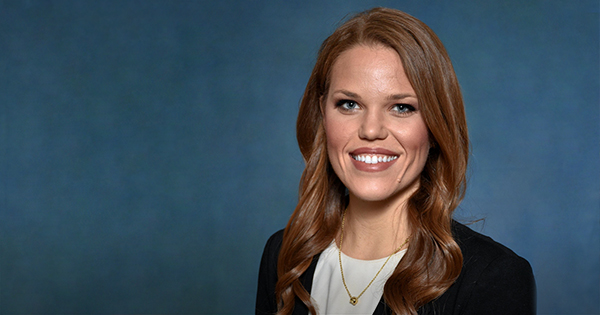
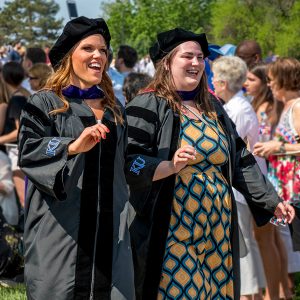
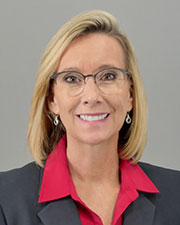 KU Law is among only a handful of law schools offering electronic discovery as a stand-alone class.
KU Law is among only a handful of law schools offering electronic discovery as a stand-alone class.